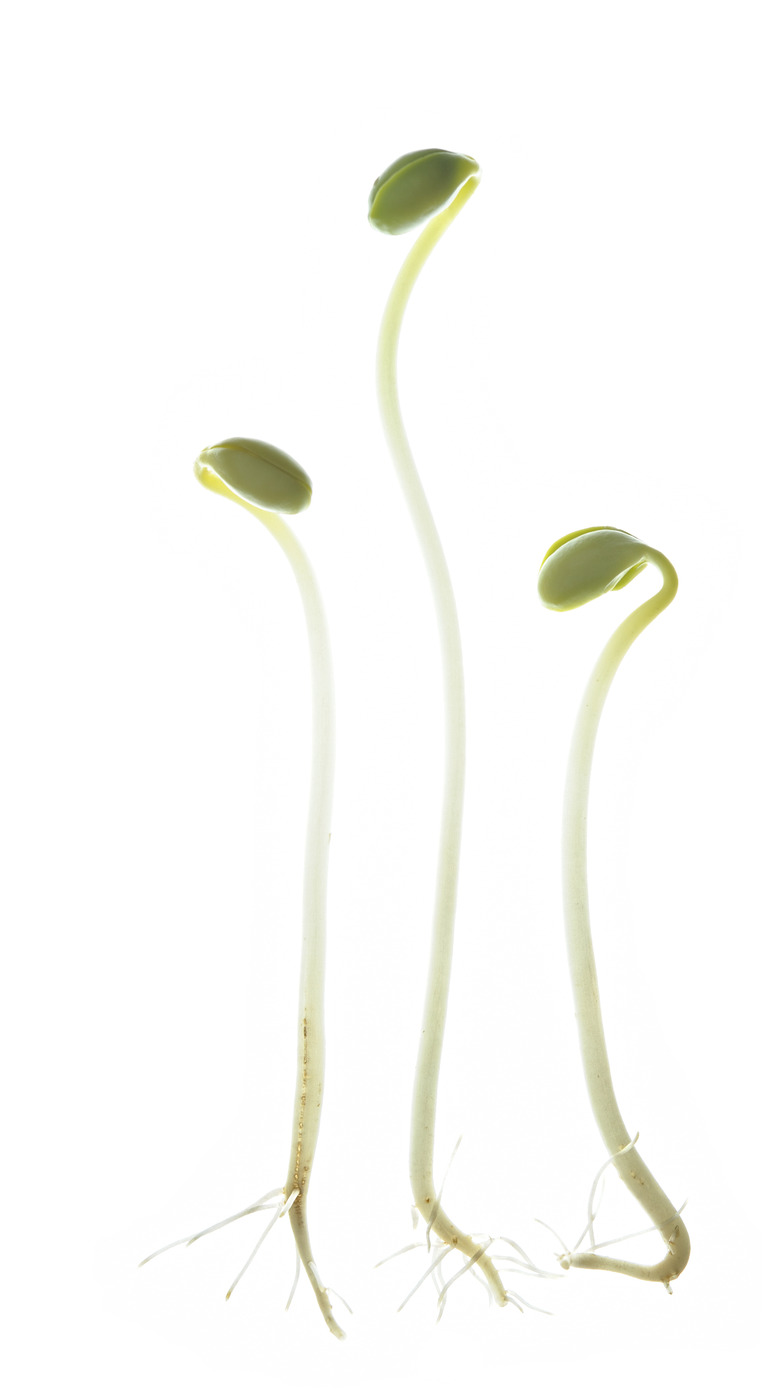Plants That Grow Fast For Science Projects
Hands-on science projects are an excellent way to teach students about real-life science concepts such as seed germination. However, many plants and seeds can take months or years in order to see any visible growth. Many species of trees, for example, often grow only a few inches per year.
Seeds from plants such as beans, herbs, gourds and various flowers are perfect for science experiments for kids because they're some of the fastest germinating seeds you can get. They are easy for kids to handle and plant, and they're also affordable to buy in bulk for a class or a large group of students.
Read more about the type of plants that are best for science projects.
Beans
Beans
Beans are not only some of the fastest growing seeds, but they're also some of the easiest seeds to grow as well, which makes them perfect for science projects. Beans don't even really need soil to grow. Students can simply put the beans in a plastic bag with a moist paper towel and see them grow, germinate and sprout in just seven to 10 days.
Read more about what type of bean seeds to use for a science experiment.
Beans also require very little maintenance, which allows students to leave the sprouts at school overnight or over weekends without risk of the plant dying or the experiment failing.
Fast Growing Herbs
Fast Growing Herbs
Herbs are fast growing plants that also require very little maintenance and that germinate and grow quickly. Herbs can also be cut and their leaves taken as samples without hurting, damaging or killing the plant. Think about home herb gardens that home cooks and chefs use: Once the plants are established, they constantly take herb leaves and other parts from the plant for their dishes and the plant quickly regrows the leaves.
Basil and mint are some of the most easily grown and fast growing seeds. Chives, sage, thyme, rosemary and oregano are all also easy and fast to grow indoors.
Garden Cress
Garden Cress
Garden cress is technically also a type of herb. However, it gets its own section here because it is especially fast growing and easily grown from seed (not all herbs are easy to grow from seed). Like beans, cress can be grown in water without soil. However, it does grow very well in soil sitting in sunny windowsills, containers and even outside.
Germination occurs within five to 15 days. However, some can see growth and germination in just 24 hours. An interesting experiment for students would be to see what conditions allow for faster germination time for garden cress. They could experiment with soil growing and soil-less growing, various light levels, water levels, soil types, locations, etc.
Pumpkins
Pumpkins
You might not think of the giant Halloween pumpkins you see and think that they are fast growing plants. But the truth is that pumpkin seeds, in the right conditions, will germinate within five to 10 days. This is an excellent science project choice because they're fast growing and they're a well-known plant that students can understand and relate to. You can also make these a long-term experiment and keep studying their growth after their initial fast germination.
Marigolds
Marigolds
Most flowers are good choices for science projects because they're almost all fast growing, even from seed. If you're looking for some of the fastest growing seeds, though, try marigolds. These flowers come in a variety of colors and will germinate in almost all conditions (light and dark, indoor and outdoor, etc) as long as the air temperature can be kept continuously around 70 degrees Fahrenheit.
These flowers will germinate in five to 10 days. These do need to have pretty consistent moisture levels in the soil. If the seeds are going to be left at school for a day or over the weekend, cover the soil with loose plastic wrap to keep moisture in without pushing any sprouts or seedlings down. Spray the soil with water from a spray bottle to avoid the seeds dislodging or washing away in the first few days.
Cite This Article
MLA
Walsh, Elliot. "Plants That Grow Fast For Science Projects" sciencing.com, https://www.sciencing.com/plants-grow-fast-science-projects-5764397/. 30 July 2019.
APA
Walsh, Elliot. (2019, July 30). Plants That Grow Fast For Science Projects. sciencing.com. Retrieved from https://www.sciencing.com/plants-grow-fast-science-projects-5764397/
Chicago
Walsh, Elliot. Plants That Grow Fast For Science Projects last modified August 30, 2022. https://www.sciencing.com/plants-grow-fast-science-projects-5764397/
